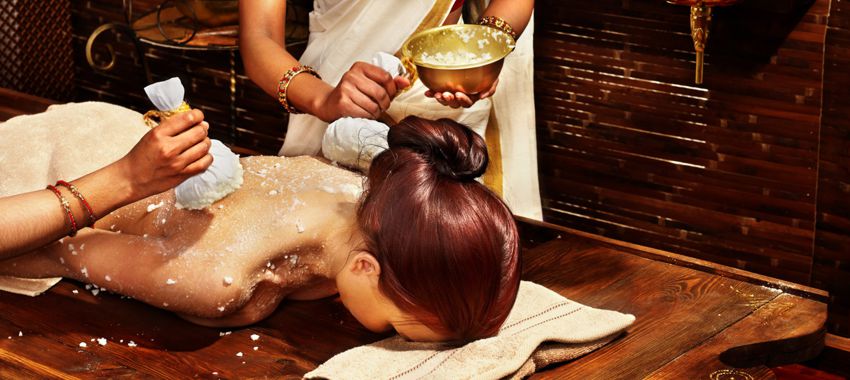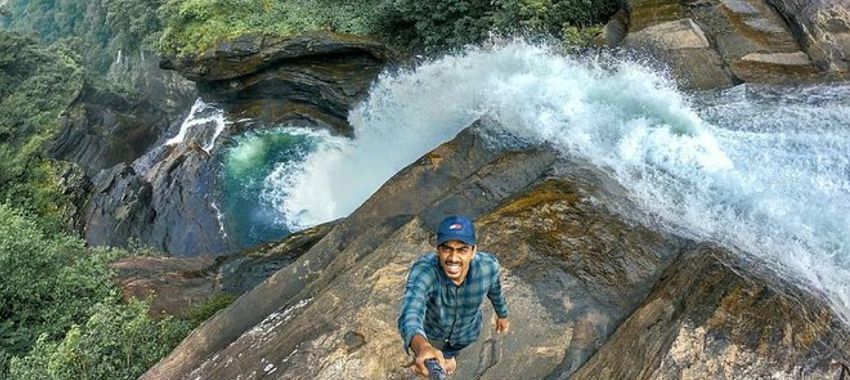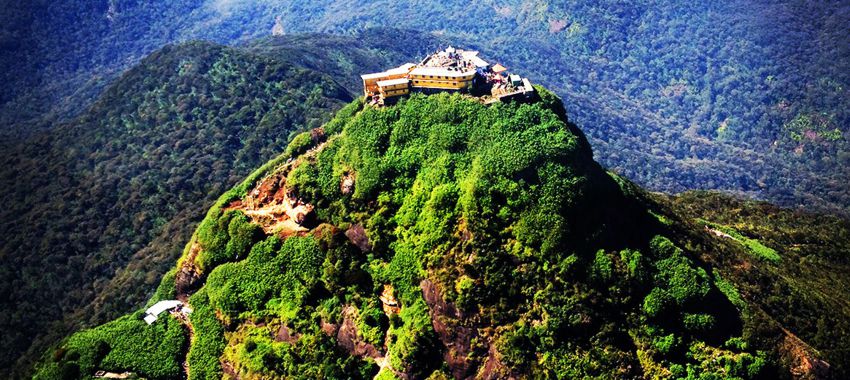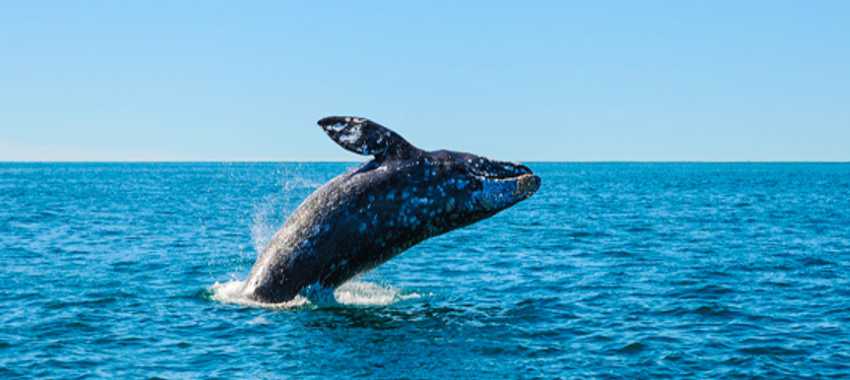Trekking & Hiking in Knuckles Mountain Range Origin of the name "Knuckles": Originally, the villagers…
Ayurveda
Pink frangipani flowers float in terracotta bowls, their sweet fragrance a counterpoint to the earthy herbal notes of the oil being gently massaged into your feet and body. As you lie on a neem wood table, with dried neem leaves hanging from the ceiling to purify the air, you slip into that elusive state where body and mind are in complete harmony, the only reminder of the outside world being the soft sigh of the Indian Ocean in the background.
One of the world’s oldest forms of healing, Ayurveda — derived from the Sanskrit words for life (ayuh) and knowledge or science (veda) — originated in India more than 3,000 years ago and soon spread to Sri Lanka, where Sinhalese kings established Ayurveda treatment centres in the ancient cities of Anuradhapura and Polonnaruwa.
In Ayurveda, a combination of herbs, diet, massage, hydrotherapy and oil treatment is used to treat everything from stress to diabetes, migraine, asthma, arthritis and high blood pressure. Ayurveda specialists will tell you that this form of treatment also helps boost the immune system, promotes a general sense of well-being and even helps delay the ageing process.
With many in the West turning from medicine which treats only the body, towards a more holistic approach, Sri Lanka has become destination for those seeking solace in the Ayurvedic principle of body, mind and soul.
Principles of Ayurveda
The basis of Ayurveda is the belief in a combination of five basic elements which form three types of energy or dosha within the body: vatha (a combination of air and space); pitha (fire and water) and kappha (earth and water). Ayurvedic practitioners believe that illness arises when these dosha are out of balance, and work to restore harmony. Comprehensive treatment not only includes massage, herbal baths, oil treatment and a special diet, but also involves meditation, yoga and music to help the mind and soul.
The pharmacopoeia of Ayurvedic preparations includes an amazing range of leaves, roots, bark, resin, spices and fruits, with familiar ingredients such as black pepper, ginger, cinnamon bark and sesame oil joined by many more esoteric items. There’s everything from aloe to zedoary, with such exotica as black cumin, blue water lily and white poppy seed.
Ayurveda Practices and Resorts
There are around 6,500 registered Ayurveda practitioners in Sri Lanka, with around twice that number practicing informally in the villages. Specialised Ayurveda resorts cater almost exclusively to visitors to Sri Lanka. They may opt for a minimal weekend stay, but are generally encouraged to stay up to two or three weeks to obtain the maximum benefit from a combination of pure fresh air, a largely vegetarian diet, yoga, meditation and individually designed Ayurvedic treatments.
In addition to a range of Ayurvedic treatments, Ayurvedic resorts offer yoga, meditation and lectures and the chance to learn how to cook food according to Ayurvedic principles, as well as go on excursions to nearby places of interest.




